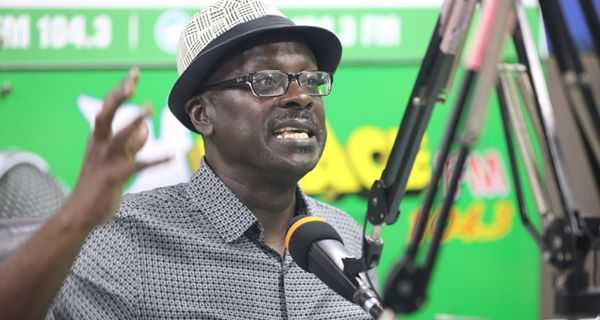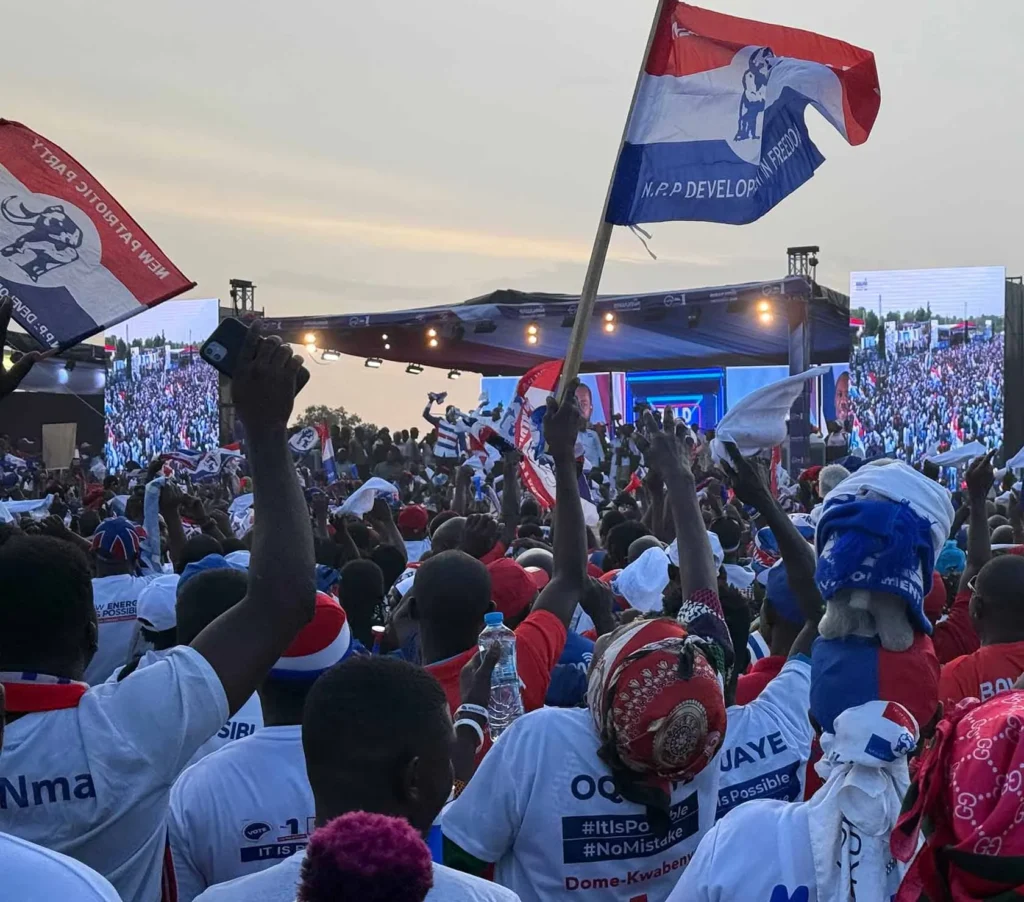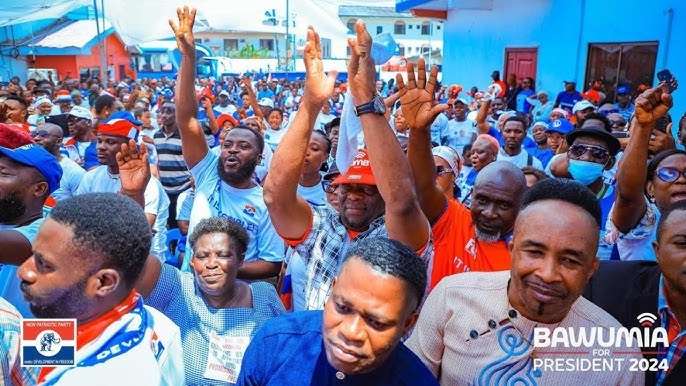Legal expert and governance advocate Prof. Stephen Kwaku Asare has urged the New Patriotic Party (NPP) to conduct its executive elections before holding presidential and parliamentary primaries.
According to him, the party’s own constitution clearly outlines a bottom-up structure that makes the renewal of leadership at every level an essential prerequisite for organizing credible candidate selections.
He explained that the NPP Constitution, particularly Articles 5 through 10, establishes a clear organizational hierarchy—from polling station to electoral area, then to constituency, region, and finally the national level.
“Each of these levels is governed by elected executives who are responsible for the administration and implementation of party activities, including the organization of primaries for flagbearers and MPs.
“If the executives who are responsible for administering and supervising these primaries are themselves not yet elected, the legitimacy and transparency of the process are undermined.”
Prof. Stephen Kwaku Asare
He also emphasized that the delegates responsible for voting in both presidential and parliamentary primaries are selected from the ranks of elected party executives.
According to the NPP Constitution, those eligible to vote in presidential primaries include executives at the national, regional, and constituency levels, while delegates for parliamentary primaries are made up of polling station executives and electoral area coordinators.
Warning Against Power Imbalance
Prof. Kwaku Asare noted that proceeding with primaries using outdated or unelected executives “compromises the representativeness of the voting process” and could lead to disputes.
The legal scholar argued that the constitutional order in the party’s governing documents suggests a deliberate sequence—one in which executive elections come first.

“The Constitution first details the structure and elections of the executive bodies (Articles 6–10), and only afterward, in Articles 12 and 13, addresses the selection of parliamentary and presidential candidates.
“This sequencing suggests a natural and necessary order: build the house before choosing who lives in it.”
Prof. Stephen Kwaku Asare
Prof. Asare further warned that bypassing the election of party executives before selecting presidential and parliamentary candidates could open the door to inappropriate influence by aspirants.
In such a scenario, candidates may use their positions to sway the appointment or retention of party officials, potentially leading to a concentration of power before the party’s democratic frameworks are properly established.
He stressed that the danger of this is far-reaching. “Executives will owe their positions not to the grassroots but to the candidates who facilitated their rise,” he said, adding that it would damage the party’s internal democracy.
Skipping Executive Elections, Precarious
Prof. Asare also emphasized that prioritizing executive elections helps ensure that those overseeing the primaries have a renewed and legitimate mandate from the grassroots.
By being elected first, these executives are more likely to be trusted by party members, enabling them to manage sensitive processes such as primaries more effectively.
This approach, he explained, can reduce internal disputes, limit factionalism, and foster greater party unity.

He was firm in his stance that interim or outgoing executives should not be allowed to carry out such sensitive duties.
“Executives have clear constitutional duties—organizing primaries, forming committees, vetting candidates, resolving disputes, and more. These responsibilities cannot be performed by outgoing or interim officers without creating legitimacy crises or constitutional breaches.”
Prof. Stephen Kwaku Asare
Anticipating counterarguments that current executives are still within their legal term, Prof. Asare acknowledged: “Yes, the term has not ended. But their mandate to elect candidates has!”
He underscored that “no executive or delegate holds a perpetual right to choose flagbearers or parliamentary aspirants.”
Prof. Asare maintained that once a new electoral cycle is triggered, the party’s immediate priority should be the renewal of its foundational structures.
Allowing previous delegates to select candidates for a new term, he argued, unfairly extends their influence and bypasses the necessary process of internal democratic refreshment.
He added that the responsibility of outgoing executives is to ensure a smooth transition by establishing the framework for electing new leadership—not to make decisions on future candidates before that leadership is in place. “Internal democracy demands a clean handover, not a power grab. Let’s not entrench old power under the guise of continuity.”
NPP Urged To Adhere To Its Constitution
Prof. Kwaku Asare made a clear appeal to the party, stressing that adherence to the NPP Constitution requires the proper electoral order to be followed.
He underscored that leadership at all levels—polling station, electoral area, constituency, regional, and national—must be elected before the selection of presidential and parliamentary candidates can legitimately take place.
He reinforced that this is not a subjective preference but a matter of constitutional principle.

“Executives are not mere functionaries—they are the organizing pillars of the primaries, forming the delegate base and supervising the nomination process. Their legitimacy must be renewed before they can perform this critical role.”
Prof. Stephen Kwaku Asare
Prof. Asare ended with a strong appeal for institutional clarity and renewal. He emphasized the need to distinguish between maintaining party structures and extending the mandate of those who currently occupy leadership positions.
According to him, outgoing executives must respectfully make way for newly elected leaders, as only a fresh base can legitimately select new candidates for the party.
He urged the NPP to prioritize its constitutional principles over personal or factional interests, emphasizing that upholding internal rules is vital to preserving the party’s integrity and democratic credibility.
Prof. Asare further highlighted that following the correct constitutional process is not only a legal obligation but also a strategic necessity.
A renewed mandate, he noted, would provide the party’s future flagbearer with a cohesive, energized, and credible political structure to lead.
Accordingly, he warned that “cutting corners may deliver short-term victories but will leave a fractured party, weaken morale, and sow seeds of internal resistance.”
Meanwhile, the debate over the sequencing of executive and candidate elections within the NPP highlights broader concerns about internal party democracy and constitutional adherence.
Ensuring that the party follows its established structures may prove essential for maintaining legitimacy, unity, and credibility ahead of future national contests.



















